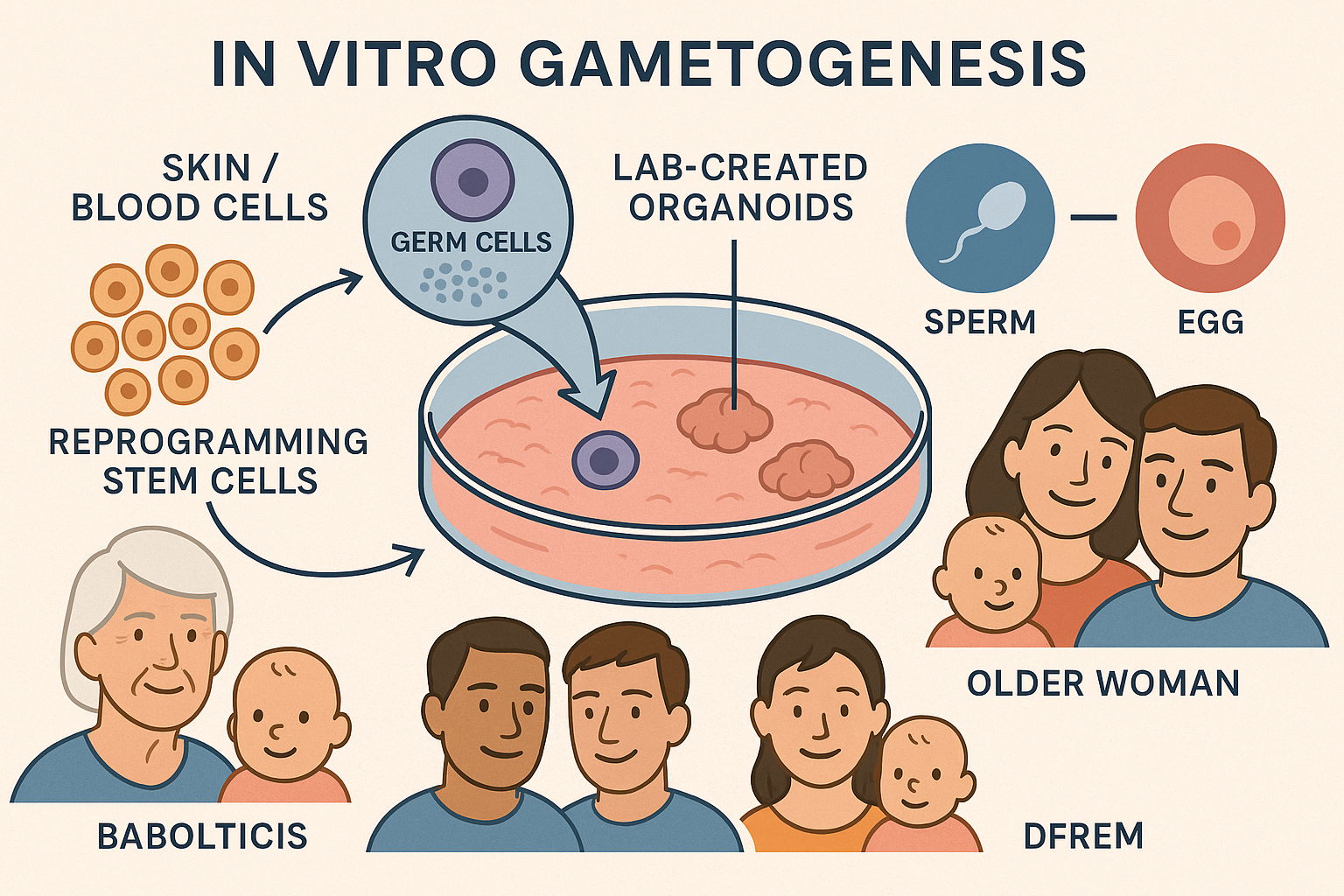Recent breakthroughs with 'in-vitro gametogenesis' (IVG) mean scientists may only be a few years away from making human sperm and eggs from regular skin or blood cells.

Essentially, IVG involves harvesting cells from a person, reprogramming these cells into stem cells, and then inducing the resulting stem cells to develop into primordial germ cells, which are essentially biologic precursors to sperm and eggs. These germ cells are then cultivated within lab-created organoids to develop into fertile gametes.
The potential benefits are immense:
- Older women, whose ovaries no longer function, could have genetically related children.
- Gay couples could potentially have biological children without using a donor.
- Those who have infertility due to disease, injury, or genes may benefit too.
In principle, IVG could eliminate many barriers that now exist between people and having kids who are genetically theirs.
However, the possibilities extend beyond what we’ve traditionally considered possible....
At the extremes we have the prospect of unibabies - bred from the same person, effectively a clone, or multiplex babies is more obvious... different genetic aspects taken from multiple donors.
This obvs raises some ethical questions...
Who would control the application of such technology? How would society guarantee that it would be used responsibly? Might this create the door for so-called "designer babies," where parents choose characteristics more than just excluding genetic disease? And what are the social and psychological implications for children born this way?
There are, of course, medical problems as well. Assuming that IVG is technically possible in humans within the seven years estimated by Professor Katsuhiko Hayashi of the University of Osaka, lab-generated eggs and sperm need to be proved absolutely safe for clinical use. Reproductive technologies involve complex genetic and epigenetic processes, and small mistakes may have great implications for children.
This tech could push the existing legal systems to their limits. Current laws and ethical guidelines for assisted reproduction were written with IVG not in consideration. Questions on parental rights, consent, and storage and use of genetic material will require urgent scrutiny by the policymakers.
Final thoughts..
The science may be ready in a decade; whether society will be is another question entirely.
Posted Using INLEO